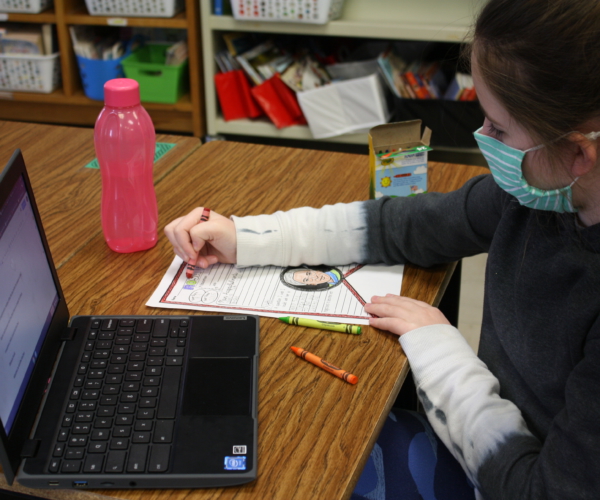Parents say children’s mental health has deteriorated during COVID, whether they were in-person or remote, and are likely to send students back to school in the fall, a new survey has found.
More than 60% of parents whose children participated in blended learning said their students’ mental health has gotten worse over the last year. Half of the parents of in-person students and 46% of remote parents had the same concern, according to a survey by ParentsTogether, a family advocacy group.
“A year into the pandemic, parents of school-aged kids are still struggling with how to keep their families safe, and that means different things for different families,” said Justin Ruben, co-director of ParentsTogether. “But they largely agree that schools should be fully open in the fall—and that the focus right now should be on supporting kids’ mental health and learning, not on conducting standardized tests.”
While many parents are still worried about COVID health risks of in-person learning, most also said the would likely send students back next school year.
More from DA: How pool testing can speed up reopening schools
They also ranked free mental health counseling as the top spending priority for American Recovery Plan Act funds, followed by improved school ventilation, relief funds for families who are struggling and hiring additional teachers and staff to support learning.
Parents surveyed opposed standardized testing by a two-to-one margin, with even larger majorities demanding results not be used to penalize students or teachers if assessments are conducted.
Any tests should also be shortened and used only to gauge the pandemic’s impact on students, the survey found.
And while unions in some districts have been blamed for keeping classrooms closed, the survey found that only 9% of parents faulted teachers when their schools remained on remote learning.
Nearly 70% of parents blamed continued closures on the COVID threat and 39% said schools did not have enough funding to implement sufficient safety precautions.
“Negative findings about the failures of blended learning underscore the need to provide regular in-person learning for children and families whose health allows it while providing high quality remote instruction for the many families who aren’t ready or able to do in-person school,” Ruben said.
Greater social-emotional concerns
In another survey, conducted by the National PTA and Learning Heroes, parents said they were more concerned about their children’s lack of social interactions with friends than they were about academic progress.
Still, two-thirds of parents said they’d been more involved in their child’s school work than ever before. However, only half expect their students to be well prepared for the next grade, and 63% believe their children have fallen behind where they would have been during a normal school year.
Also, 43% of parents said they were less confident that they understood how their child was performing academically.
“For the past six years, 9 in 10 parents—regardless of race, income or education level—have reported that their child is at or above grade level in reading and math,” said Bibb Hubbard, founder and president of Learning Heroes, a nonprofit that promotes parent engagement. “Today, with a front row seat into their child’s education, we are seeing some concern among parents that their child may not be prepared for grade level work.”









